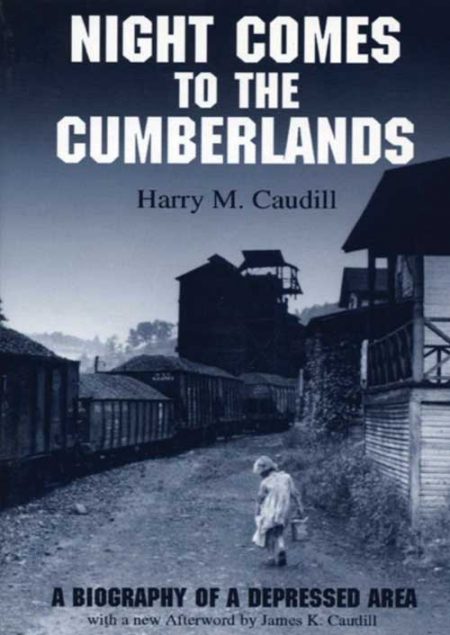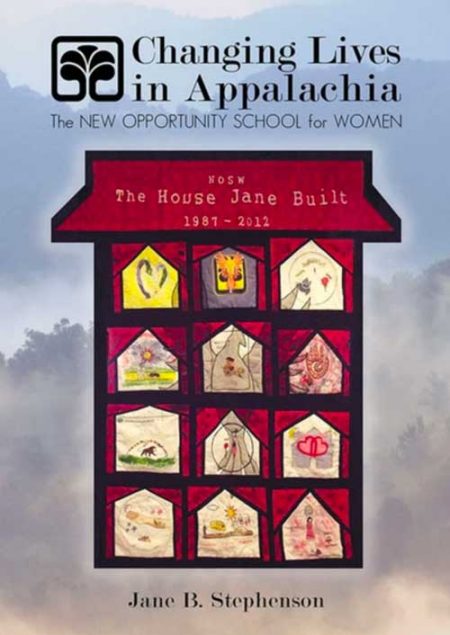-
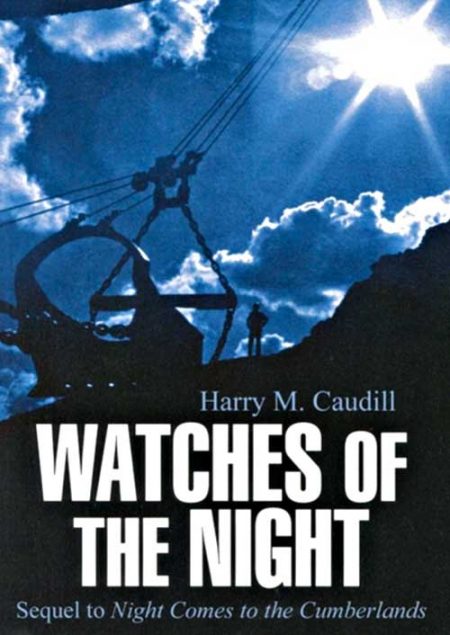 In 1963, Harry M. Caudill published his now classic account of the reckless, deliberate despoliation of the Appalachian Plateau, Night Comes to the Cumberlands. Thirteen years later, in The Watches of the Night, Caudill continued the heartbreaking story of an incredibly rich land inhabited by a grindingly poor people whose problems, despite state and local aid and an unprecedented boom in coal, had worsened: the land was being stripped more rapidly than ever; the people’s traditional relationship with the land was being uprooted, and their old customs eliminated by standardization Both a narrative history and a polemic against greed and waste, The Watches of the Night hammers at “the profligacy growing out of the persistent myth of superabundance.” The author ponders an even darker future if the cycle of boom and bust is not broken. He writes: “Americans have never understood or respected the finely textured, little-hill terrain of the Cumberland Plateau.” Neither the farmers nor the miners who followed the early pioneers saw it as a place cherish. Through decades that have lengthened to nearly two centuries the land has fought back, sometimes with savage floods and always with persistent efforts to reforest. “But now times runs out and our “inexhaustible” resources have turned finite….The Kentucky Cumberlands are many things, but most of all they are a warning.” By Harry M. Caudill
In 1963, Harry M. Caudill published his now classic account of the reckless, deliberate despoliation of the Appalachian Plateau, Night Comes to the Cumberlands. Thirteen years later, in The Watches of the Night, Caudill continued the heartbreaking story of an incredibly rich land inhabited by a grindingly poor people whose problems, despite state and local aid and an unprecedented boom in coal, had worsened: the land was being stripped more rapidly than ever; the people’s traditional relationship with the land was being uprooted, and their old customs eliminated by standardization Both a narrative history and a polemic against greed and waste, The Watches of the Night hammers at “the profligacy growing out of the persistent myth of superabundance.” The author ponders an even darker future if the cycle of boom and bust is not broken. He writes: “Americans have never understood or respected the finely textured, little-hill terrain of the Cumberland Plateau.” Neither the farmers nor the miners who followed the early pioneers saw it as a place cherish. Through decades that have lengthened to nearly two centuries the land has fought back, sometimes with savage floods and always with persistent efforts to reforest. “But now times runs out and our “inexhaustible” resources have turned finite….The Kentucky Cumberlands are many things, but most of all they are a warning.” By Harry M. Caudill -
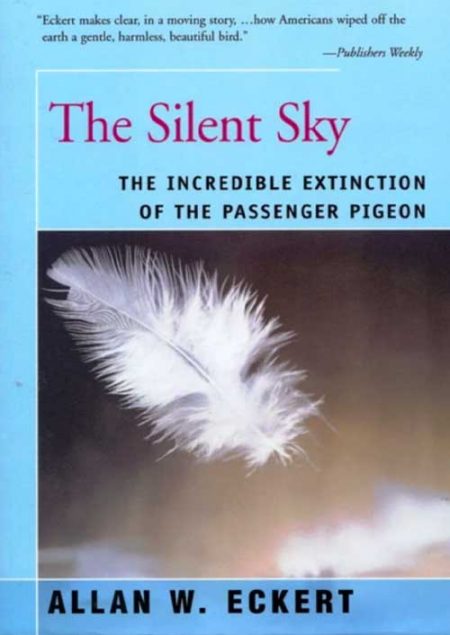 This nature novel, by following the hatching and lifetime experiences of the last know wild passenger pigeon, chronicles the life, natural history, and ultimate extinction of this species which was once the most abundant bird species in North America. The last wild bird was killed in 1900; the last captive bird died in 1914. By Allan Eckert
This nature novel, by following the hatching and lifetime experiences of the last know wild passenger pigeon, chronicles the life, natural history, and ultimate extinction of this species which was once the most abundant bird species in North America. The last wild bird was killed in 1900; the last captive bird died in 1914. By Allan Eckert -
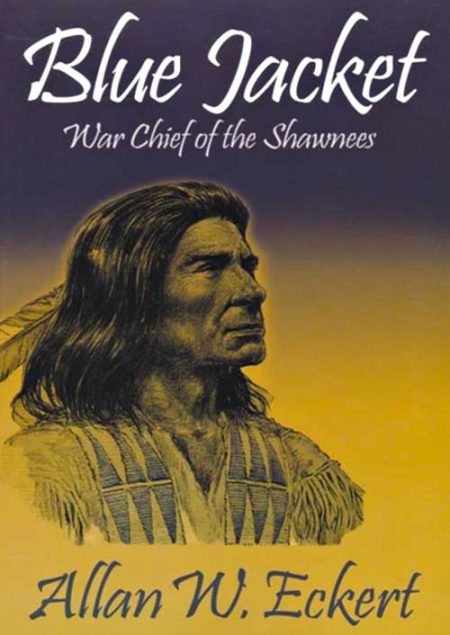 In the year 1771, a white boy named Marmaduke Van Swearingen was captured by the Shawnee Indians in what is now West Virginia, but was then the edge of the American frontier. Impressed with his bravery, he was not killed but instead was taken to Ohio where he was adopted into the tribe and given the name Blue Jacket, from the blue shirt he was wearing at the time of his capture. Eckert has taken all of the known facts of Blue Jacket's life and has woven them into a narrative of compelling interest, with a very different perspective on the way America was settled. The reader will learn what life was really like on the dangerous frontier wilderness that was West Virginia, Kentucky and Ohio before the Revolutionary War. By Allan Eckert
In the year 1771, a white boy named Marmaduke Van Swearingen was captured by the Shawnee Indians in what is now West Virginia, but was then the edge of the American frontier. Impressed with his bravery, he was not killed but instead was taken to Ohio where he was adopted into the tribe and given the name Blue Jacket, from the blue shirt he was wearing at the time of his capture. Eckert has taken all of the known facts of Blue Jacket's life and has woven them into a narrative of compelling interest, with a very different perspective on the way America was settled. The reader will learn what life was really like on the dangerous frontier wilderness that was West Virginia, Kentucky and Ohio before the Revolutionary War. By Allan Eckert -
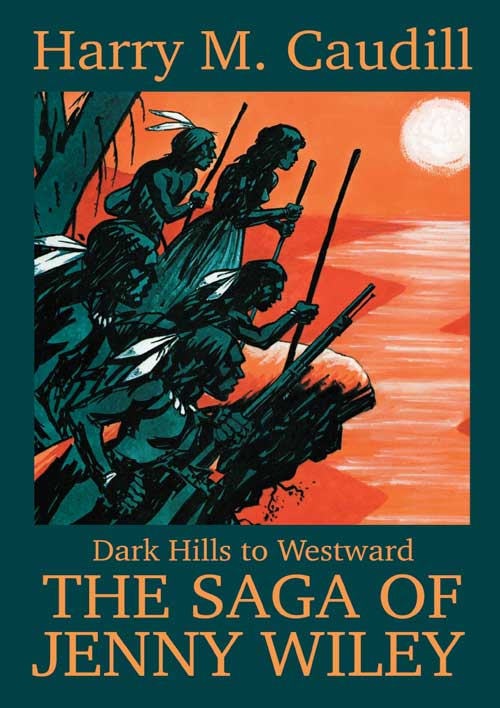 Best known for his nonfiction work "Night Comes to the Cumberlands," Harry M. Caudill also wrote fiction, including “Dark Hills to Westward: The Saga of Jenny Wiley,” first published in 1969 and recently reprinted in a new softback edition by the Jesse Stuart Foundation. When Jenny was an old woman, a preacher had sat down with her and wrote out her captivity story. Although Jenny may have embellished it many times, it is the only first-hand account we have, and it’s the primary source for Caudill’s novel. Briefly, here is her story. Thomas and Jenny Wiley had pioneered land on Walker’s Creek in Bland County, Virginia. On October 1, 1789, while Thomas was away, a small band of Indians, seeking revenge for a recent defeat at the hands of white settlers, attacked the Wiley cabin and killed and scalped Jenny’s three older children and her brother. Jenny, seven months pregnant, was taken captive along with her baby son, Adam. SOFTBACK VERSION By Harry M. Caudill
Best known for his nonfiction work "Night Comes to the Cumberlands," Harry M. Caudill also wrote fiction, including “Dark Hills to Westward: The Saga of Jenny Wiley,” first published in 1969 and recently reprinted in a new softback edition by the Jesse Stuart Foundation. When Jenny was an old woman, a preacher had sat down with her and wrote out her captivity story. Although Jenny may have embellished it many times, it is the only first-hand account we have, and it’s the primary source for Caudill’s novel. Briefly, here is her story. Thomas and Jenny Wiley had pioneered land on Walker’s Creek in Bland County, Virginia. On October 1, 1789, while Thomas was away, a small band of Indians, seeking revenge for a recent defeat at the hands of white settlers, attacked the Wiley cabin and killed and scalped Jenny’s three older children and her brother. Jenny, seven months pregnant, was taken captive along with her baby son, Adam. SOFTBACK VERSION By Harry M. Caudill -
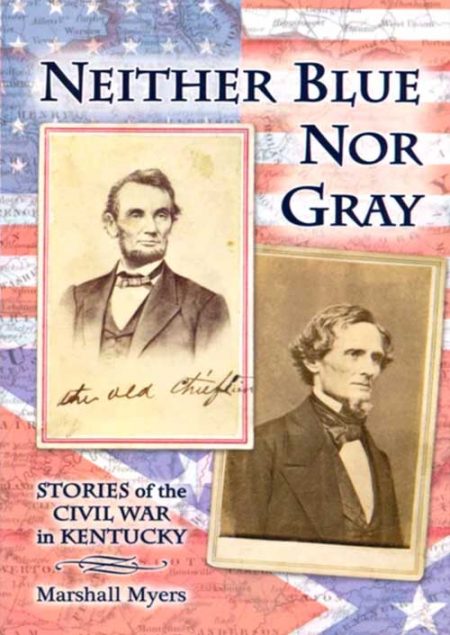 The Civil War affected the daily lives of almost everyone in the Commonwealth of Kentucky, a slave holding state that chose not to secede from the United States. Here are the untold stories of lesser known combatants or the folks back home who suffered in so many ways from the ravages of war. Seventeen chapters range in topics from interviews with former slaves to an examination of Mary Todd Lincoln's family's military involvement in the war. SOFTBACK By Marshall Myers
The Civil War affected the daily lives of almost everyone in the Commonwealth of Kentucky, a slave holding state that chose not to secede from the United States. Here are the untold stories of lesser known combatants or the folks back home who suffered in so many ways from the ravages of war. Seventeen chapters range in topics from interviews with former slaves to an examination of Mary Todd Lincoln's family's military involvement in the war. SOFTBACK By Marshall Myers -
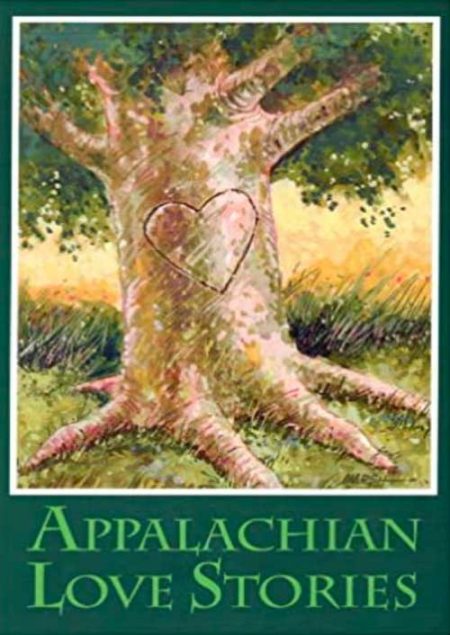 Authors represented in Appalachian Love Stories include:
Authors represented in Appalachian Love Stories include:- Jesse Stuart
- Ancella R. Bickley
- James M. Gifford
- Jimmy Lowe
- James B. Goode
- Edwina Pendarvis
- Laura Treacy Bentley
- Bruce Radford Richey
- Ina Everman
- Danny Fulks
- Loyal Jones
- Billy C. Clark
- Linda Scott DeRosier
- Christina St. Clair
- Alexandra Combs Hudson
- Kate Larken
- Barbara Smith
- Carol Van Meter
-
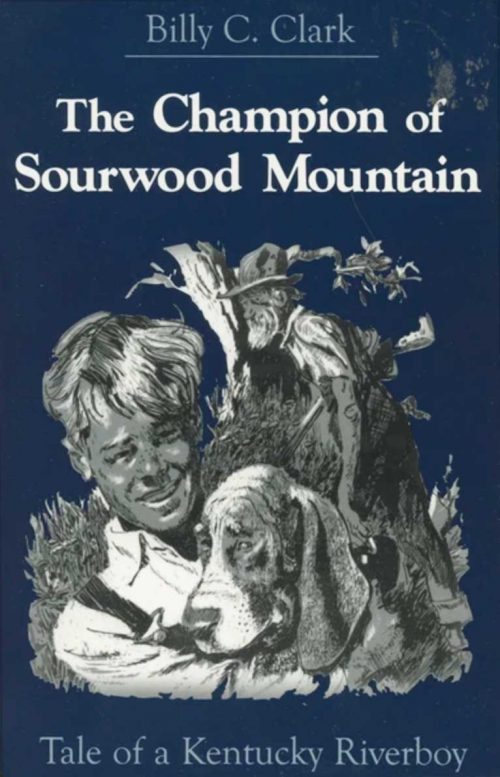 The people, the lore, even the sounds of eastern Kentucky come vividly to life in this affectionate story of a boy and his search dog. In the shadow of Sourwood Mountain, fourteen-year-old Aram Tate is absorbed in the sometimes painful process of growing up. His all-consuming passion is to own a hound dog of his very own, and his efforts to achieve this dream involve him in a series of amusing adventures which broaden his boy's-eye view of the world. Through his friendship with ne'er-do-well Eb ringtom, Aram Learns the ways of men as they never were described in books. Among the other colorful characters who contribute to the boy's education are Lighting and Napoleon, two imcomparably wily gamecocks; Thusla, Eb's great hound whose exploits can only be described as apocryphal; and Rile Feder and his dog, the bluetick Tweedle, who fears neither coon nor fox. SOFTBACK By Billy C. Clark
The people, the lore, even the sounds of eastern Kentucky come vividly to life in this affectionate story of a boy and his search dog. In the shadow of Sourwood Mountain, fourteen-year-old Aram Tate is absorbed in the sometimes painful process of growing up. His all-consuming passion is to own a hound dog of his very own, and his efforts to achieve this dream involve him in a series of amusing adventures which broaden his boy's-eye view of the world. Through his friendship with ne'er-do-well Eb ringtom, Aram Learns the ways of men as they never were described in books. Among the other colorful characters who contribute to the boy's education are Lighting and Napoleon, two imcomparably wily gamecocks; Thusla, Eb's great hound whose exploits can only be described as apocryphal; and Rile Feder and his dog, the bluetick Tweedle, who fears neither coon nor fox. SOFTBACK By Billy C. Clark -
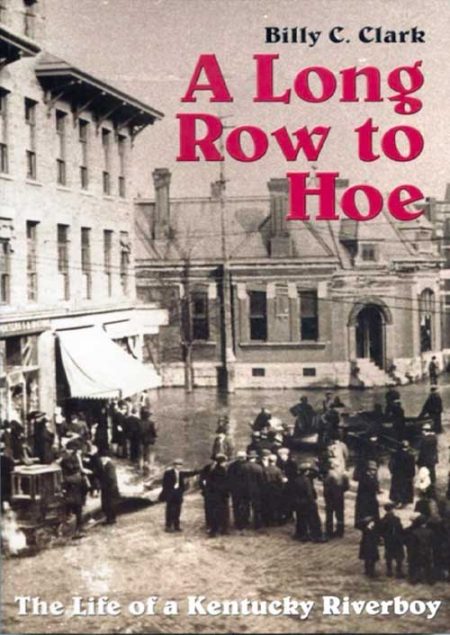 Boston University, the site of the world’s finest repository of 20th Century literature, praises Billy C. Clark as “one of the South’s most distinguished writers.” In this fascinating and highly readable book, Clark, founder and editor of Virginia Writing, writes of his own astonishingly primitive childhood in an Appalachian river town, Catlettsburg, Kentucky, at the junction of the Big Sandy and the Ohio Rivers. Billy C. Clark was a member of a sprawling, ragged family. His father was an intelligent, fiddle-playing shoemaker with little formal education. His mother often took in washing to help provide food for the family. Billy grew up in a derelict house, “The Leaning Tower,” on the banks of the Ohio. Always hungry, often dirty, and without sufficient clothing, he led an adventurous life on the two rivers, swimming, fishing, and salvaging flotsam from the frequent floods. He set trout lines for fish and trap lines for mink and muskrats, and he walked fourteen miles before school to clear his traps. He learned laughter from his magnificent mother and wisdom from his father, who taught him that “poor folks have a long row to hoe….” Billy was the only one of his family to seek an education, and through his traps, his river salvage, and odd jobs, he earned money to put himself through school. The book ends with a powerful account of his parents’ pride at his graduation. Time Magazine said that this book is “as authentically American as Huckleberry Finn.” It is a touching account of a boy and two rivers. It is a must for public and school libraries, or anyone interested in Appalachian history or literature. By Billy C. Clark
Boston University, the site of the world’s finest repository of 20th Century literature, praises Billy C. Clark as “one of the South’s most distinguished writers.” In this fascinating and highly readable book, Clark, founder and editor of Virginia Writing, writes of his own astonishingly primitive childhood in an Appalachian river town, Catlettsburg, Kentucky, at the junction of the Big Sandy and the Ohio Rivers. Billy C. Clark was a member of a sprawling, ragged family. His father was an intelligent, fiddle-playing shoemaker with little formal education. His mother often took in washing to help provide food for the family. Billy grew up in a derelict house, “The Leaning Tower,” on the banks of the Ohio. Always hungry, often dirty, and without sufficient clothing, he led an adventurous life on the two rivers, swimming, fishing, and salvaging flotsam from the frequent floods. He set trout lines for fish and trap lines for mink and muskrats, and he walked fourteen miles before school to clear his traps. He learned laughter from his magnificent mother and wisdom from his father, who taught him that “poor folks have a long row to hoe….” Billy was the only one of his family to seek an education, and through his traps, his river salvage, and odd jobs, he earned money to put himself through school. The book ends with a powerful account of his parents’ pride at his graduation. Time Magazine said that this book is “as authentically American as Huckleberry Finn.” It is a touching account of a boy and two rivers. It is a must for public and school libraries, or anyone interested in Appalachian history or literature. By Billy C. Clark -
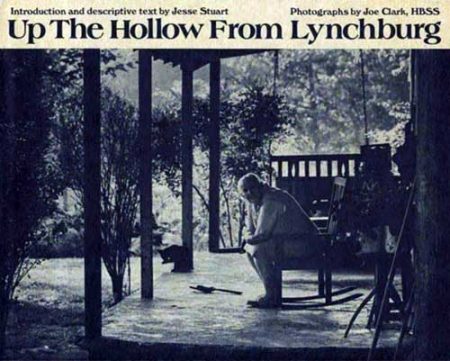 Jesse Stuart and Joe Clark's photographic essay of the town Lynchburg, located where the Blue Grass country meets the Cumberland Mountains of Tennessee. Known for the Jack Daniels distillery, the townspeople are loyal to their employer and to each other. But they are also "close-to-the-land" people who farm, raise livestock, and enjoy diversions which have nothing at all to do with the distillery. For the most part, it is their lives outside of working hours that Clark and Stuart have chosen to reflect. Photographs by Joe Clark Foreword by Jesse Stuart
Jesse Stuart and Joe Clark's photographic essay of the town Lynchburg, located where the Blue Grass country meets the Cumberland Mountains of Tennessee. Known for the Jack Daniels distillery, the townspeople are loyal to their employer and to each other. But they are also "close-to-the-land" people who farm, raise livestock, and enjoy diversions which have nothing at all to do with the distillery. For the most part, it is their lives outside of working hours that Clark and Stuart have chosen to reflect. Photographs by Joe Clark Foreword by Jesse Stuart -
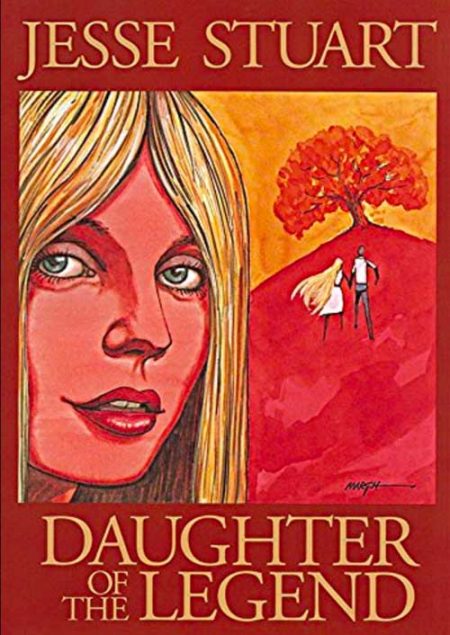 Jesse Stuart's enduring story to this idyllic love that conquered hate and fear draws strength from the calmness of the surrounding Tennessee mountains, where nature, in all her glory, heals the wounds inflicted by men. It is a rich and poignant story, full of local mountain life and humorous touches. Daughter of the Legend is a master storyteller's finest, most lyric book, a book rewarding in the reading and delightful in the memory. It touches the heart and eternity. SOFTBACK By Jesse Stuart
Jesse Stuart's enduring story to this idyllic love that conquered hate and fear draws strength from the calmness of the surrounding Tennessee mountains, where nature, in all her glory, heals the wounds inflicted by men. It is a rich and poignant story, full of local mountain life and humorous touches. Daughter of the Legend is a master storyteller's finest, most lyric book, a book rewarding in the reading and delightful in the memory. It touches the heart and eternity. SOFTBACK By Jesse Stuart


